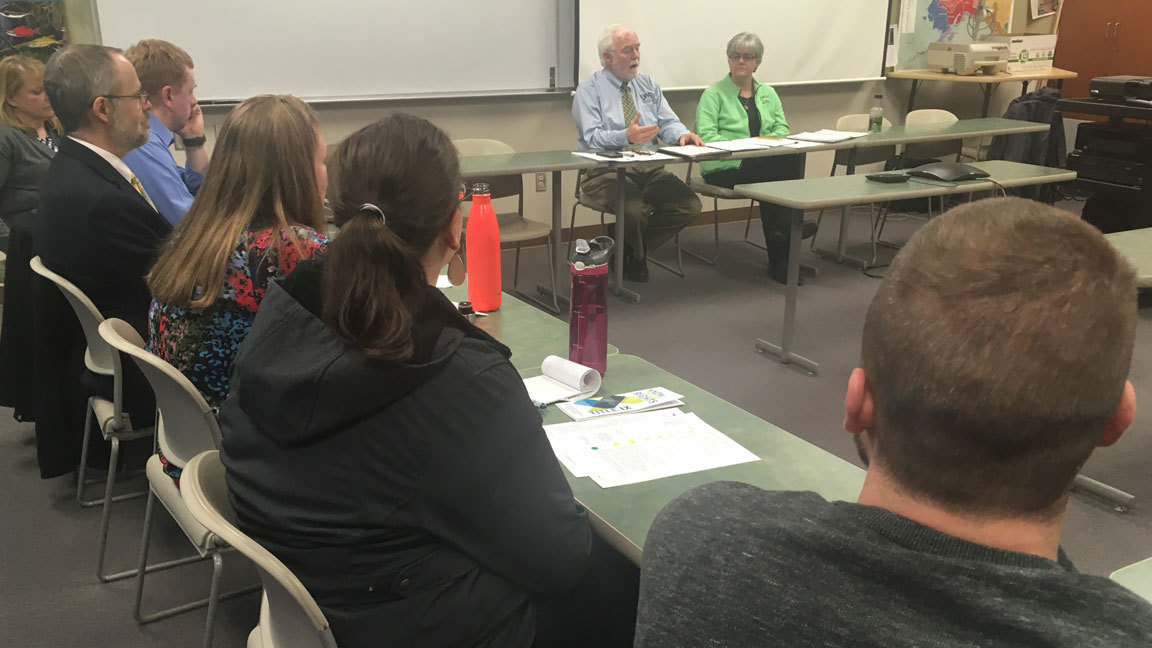In 2013, a University of Alaska student was found in a dorm. She was drunk, unconscious and wrapped in a blanket with her clothing partially undone. A soldier was later court-martialed for her rape. The woman never received help from the university. Instead, the university cited her for underage drinking.
In the same year, a University of Alaska student teacher sexually assaulted middle school students. The university knew it was happening and discussed what to do ─ but ultimately did nothing. Even when the case was publicized in the Alaska Dispatch News, the university decided against a formal investigation because there were no victims at the university itself.
These are two of 23 faults found by an in-depth federal review of the University of Alaska’s responses to reports of sexual assault on its campuses.
The review began in 2014 and looked at 274 cases between 2011 and 2015. The results of the review were released Tuesday, days after the university signed an agreement to settle the issues discovered in the investigation.
“OCR determined that the (University of Alaska) System violated Title IX with respect (to) its response to sexual harassment complaints, including complaints of sexual assault and sexual violence,” states a summary dated Tuesday.
Under the terms of the university system’s settlement, it must intensify its reporting and training with regard to sexual assault and harassment, then do that under the watchful eye of the federal government.
“The university enters into the VRA not grudgingly but with dedication to improving safety and climate on our campuses. Our efforts will extend beyond its technical requirements. We will hold ourselves to high standards not because we are compelled to, but because you, the Board of Regents and all Alaskans deserve it and because it is the right thing to do,” UA president Jim Johnsen said in a letter released Monday.
In addition to the federal report, the university system conducted its own investigation after it learned not a single Fairbanks student had been suspended or disciplined for any sexual assault cases between 2011 and 2014.
The results of that report were released March 31, 2016, and confirmed that UAF failed to adequately address five sexual assaults.
On Wednesday, University of Alaska Southeast Chancellor Rick Caulfield held a forum on campus to address the report’s findings with regard to Juneau, Sitka and Ketchikan.
“My personal opinion is this is long overdue,” Caulfield said. “I think we have been short of responding appropriately to some of these issues.”
The settlement requires the university system to hire a “Title IX coordinator” to ensure compliance with a portion of federal law that ensures equal access to education for men and women alike. That portion, called Title IX, is the tool used by the federal government to ensure universities are not ignoring sexual assaults and harassment.
In Juneau, the coordinator is Lori Klein.
Speaking Wednesday, she said the University of Alaska Southeast might be smaller than the campuses in Anchorage and Fairbanks, but it experiences the same problems.
According to the latest campus crime report, which covers the years 2013-2015, there was one on-campus rape in 2014, two instances of inappropriate touching in 2015 and 2014, and one instance in 2013.
In another example, UAS campuses in Sitka and Ketchikan reported no Title IX problems between 2011 and 2015.
Caulfield said he’d like to believe that, but he knows that’s not likely to be the truth in Alaska, a state with the highest rates of sexual assault in the United States.
Since Klein began training staff and students to report problems — and how to report them — the number of reports has risen.
“While no one wants to see more reports … it tells me we’re doing a better job in telling people what the ways are for reporting,” Caulfield said.
“We can confidently say we have 70 percent of our employees trained,” Klein said.
She said UAS still needs to work with some adjunct faculty and with students.
Caulfield said the university knows it has done wrong. It still hopes some good can come of the situation.
“My hope as chancellor is that we can be a leader in the state both in educating our students and employees … and that will in turn spread in our communities,” he said.
• Contact reporter James Brooks at james.k.brooks@juneauempire.com or 419-7732.

